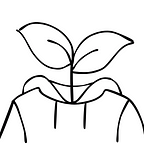Please, go on holiday
Psychological effects of taking vacations
The most anxious people have been counting down for some time now…
We’re on vacation and if you weren’t planning on leaving, I’ll convince you to go.
Psychological benefits of taking a vacation
1. Stress reduction and improved mood
Annihilate your stress and increase your happiness with a vacation.
Vacations reduce levels of cortisol, the stress hormone (Gump and Matthews, 2000) while increasing your happiness from discovering places and having new experiences (Gilbert and Abdullah 2004). Getting out of the routine will dissipate all that mental noise you have because you will leave the environment that reminds you of the pile of pending tasks (Westman and Etzion, 2001).
You don’t have to go far, a simple change of environment will change how you feel.
2. Increase creativity
Rest is the perfect setting to unleash creativity.
Workers who return from vacation are known to be more creative and efficient (Fritz and Sonnentag, 2006). Now take it to the personal level and think about all those ideas that may arise. This disconnection is similar to boredom and I recently talked about what I do to be more creative thanks to downtime, check it out if you want to be more creative.
The brain needs to stop the stimulation and organize itself so that ideas arise.
3. Better social relationships
If you want to get along with others, go on vacation. Whether traveling with family, friends or partner, shared free time helps build and strengthen bonds. Couples who vacation together later have more relationship satisfaction and better communication than couples who vacation separately (Shahvali et al., 2019)
Beach vacation effect
Why is the beach your favorite destination year after year?
People who spend their vacations near the beach return with less stress and a better mood than those who go to other places. Temperatures are milder near the sea, the air is fresher and the sound of the waves helps to relax (Nichols, 2014; Hipp and Ogunseitan, 2011). The tranquility that is breathed on the shore is incomparable and I am more of a fan of going to the mountains.
The vacation was good, but on the beach better.
How to get back to routine without dying in the attempt
The bad thing about having so much fun is that everything tastes like nothing.
Many people suffer from post-holiday syndrome, feeling anxiety, bad mood and terrible demotivation. This happens because of the sharp contrast between absolute carelessness and responsibilities (Sonnentag and Fritz, 2007). To avoid this, return a few days before your vacation and take advantage of those days to readapt at home, so you will avoid this sudden change that affects your mental health.
I experienced it every year after the summer holidays when I was a student, I suffered an existential crisis when starting the course 😅.
But there are worse cases.
I had a friend in high school who lived for the holidays, her life had two parts: the bad and the holidays.
During the school year he counted the days until the next vacation. She spent the whole summer from party to party, she had her vacations scheduled since January 1st. Her lifestyle led her to live in constant dissatisfaction, she was anxious for Friday to arrive and depressed every Monday.
If this story describes you, try the following:
Set aside time every day to do what fills you up, even if it’s just a little bit. If every day you strive to make progress on your goals and practice your passions, I doubt you need to wait impatiently for Friday to have a good time. What I’m telling you has worked for me and has been a change in mentality.
Every day I reserve time for my goals and hobbies, I don’t care if it is the busiest day of the year, that time is respected.
There are days when I have to make real efforts to remember what day I live in.
They all feel the same.
Just as good.
✍️ It’s your turn: Do you like to go far away or do you prefer a refreshing break in your area?
💭 Quote of the day: “I don’t know why, but I always find it very important that the first day of a vacation should be sunny.” Enid Blyton in Five on a Treasure Island.
Share it with that person living under stress
See you soon! Have a good rest 😊.
References 📚
- Fritz, C., & Sonnentag, S. (2005). Recovery, Health, and Job Performance: Effects of Weekend Experiences. Journal Of Occupational Health Psychology, 10(3), 187–199. https://doi.org/10.1037/1076-8998.10.3.187
- Gilbert, D., & Abdullah, J. (2004). Holidaytaking and the sense of well-being. Annals Of Tourism Research, 31(1), 103–121. https://doi.org/10.1016/j.annals.2003.06.001
- Gump, B. B., & Matthews, K. A. (2000). Are Vacations Good for Your Health? The 9-Year Mortality Experience After the Multiple Risk Factor Intervention Trial. Psychosomatic Medicine, 62(5), 608–612. https://doi.org/10.1097/00006842-200009000-00003
- Hipp, J. A., & Ogunseitan, O. A. (2011). Effect of environmental conditions on perceived psychological restorativeness of coastal parks. Journal Of Environmental Psychology, 31(4), 421–429. https://doi.org/10.1016/j.jenvp.2011.08.008
- Nichols, W. J. (2014). Blue mind: How Water Makes You Happier, More Connected and Better at What You Do. Hachette UK.
- Shahvali, M., Kerstetter, D. L., & Townsend, J. N. (2019). The Contribution of Vacationing Together to Couple Functioning. Journal Of Travel Research, 60(1), 133–148. https://doi.org/10.1177/0047287519892340
- Sonnentag, S., & Fritz, C. (2007). The Recovery Experience Questionnaire: Development and validation of a measure for assessing recuperation and unwinding from work. Journal of Occupational Health Psychology, 12(3), 204–221.
- Westman, M., & Etzion, D. (2001). The impact of vacation and job stress on burnout and absenteeism. Psychology & Health, 16(5), 595–606. https://doi.org/10.1080/08870440108405529
